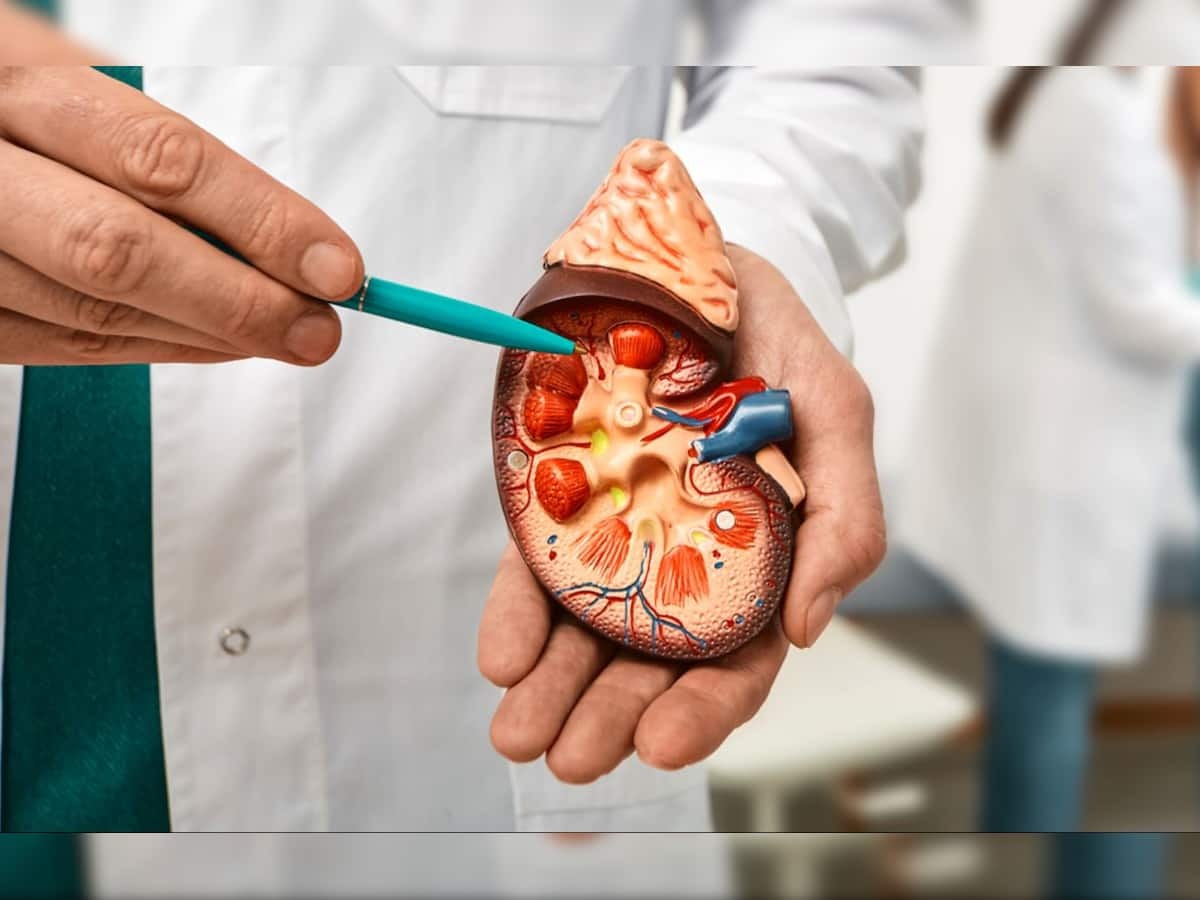
Symptoms of CKD disease: Chronic kidney disease (CKD) is a growing disease, affecting millions of people worldwide. In this disease, kidney function gradually decreases. If not treated timely, it often turns into end stage kidney disease (ESRD). Our kidneys play an important role in filtering out toxins produced in the body, controlling blood pressure and maintaining electrolyte balance.
In such a situation, when the kidney is not able to do its work properly, many types of diseases start occurring in the body, which later become fatal. In such a situation, today we must know about the early identification of this disease (CKD), its treatment and its effect on the patients. India's renowned Nephrologist Dr Saurabh Pokhriyal, who is also the Co-Founder and Director of Vitascare Med Life Pvt Ltd, spoke to Zee News about this.
What are the stages of CKD?
CKD can generally be divided into five stages based on glomerular filtration rate (GFR). This filtration rate indicates kidney function.
Step 1: This stage results in a normal or high GFR (≥90 ml/min), indicating that the amount of protein in the urine is increasing.
Step 2: In this stage, there is a mild decrease in GFR (60-89 ml/min) and kidney damage.
step 3: In this stage there is a moderate decrease in GFR (30-59 ml/min). This is often divided into 3A (45–59 mL/min) and 3B (30–44 mL/min).
Stage 4: In this stage there is a sharp decline in GFR (15-29 ml/min). In such a situation, preparation for renal replacement therapy becomes necessary.
Step 5: In this late stage, kidney disease becomes severe, (GFR<15 ml/min). In such a situation, the only option left to save the life of the patient is dialysis or kidney transplant.
According to doctors, the disease can vary from one stage to another and may take several years.
predisposing factors-
1. Diabetes- High blood pressure: Diabetes and high blood pressure are the two major causes of CKD. If both these things are controlled then the speed of progression of CKD can be slowed down.
2. Heredity: If a person has a family history of the disease, they are more likely to develop CKD.
3. Lifestyle: A person's diet, physical activity, smoking and alcohol consumption can make the kidneys sick. Along with this, consumption of excess sodium and processed food can also cause kidney disease.
4. Medicine and Treatment: Some medicines can help the kidneys control blood pressure. But there are some medicines, whose overdose can cause problems like kidney damage and NSAIDs.
5. Regular Checkup: We should keep getting our body checked from time to time to check for any kind of irregularity in the kidneys. This helps us to catch kidney disease in time and start its treatment.
What are the symptoms of CKD?
According to doctors, CKD does not show any specific symptoms in the initial stages, which makes it difficult to identify. However, as the disease progresses, the following may appear:
1. fatigue and weakness
2. swelling in feet, ankles, or legs
3. increased or decreased frequency of urination
4. frequent nausea or vomiting
5. difficulty breathing
6. having high blood pressure
How to control CKD?
The ever-increasing number of CKD cases is placing a burden on patients as well as an already strained health care system. Chronic kidney disease is a disease that cannot be completely cured. However, there are several treatment methods that can be used to slow down its growth rate.
high blood pressure: Keeping high blood pressure under control can reduce the rate of kidney failure to a great extent. The use of certain classes of drugs, such as ACE inhibitors, ARBs, renin inhibitors, and aldosterone antagonists, helps control blood pressure and reduce proteinuria, thereby slowing the progression of CKD.
diabetes: If diabetes remains uncontrolled for a long time, it accelerates the progression of CKD. However, if blood sugar levels are continuously monitored, the progression of CKD can be slowed. Newer drugs like SGLT2 also appear to help control diabetes.
Use of over the counter medicines: Many people go to medical stores and buy medicines and consume them without doctor's advice. Doing this can increase the problems of kidney patients. In such a situation it should be avoided.
Diet: People with CKD should eat foods rich in protein, sodium, phosphorus, and potassium. Thus diet may help slow the progression of CKD.
Progression of the disease can be halted by measures such as avoiding alcohol and smoking, increasing physical activity, and losing weight. Along with this, the suffering person should also practice meditation and yoga, this helps in reducing stress.
 look news india
look news india